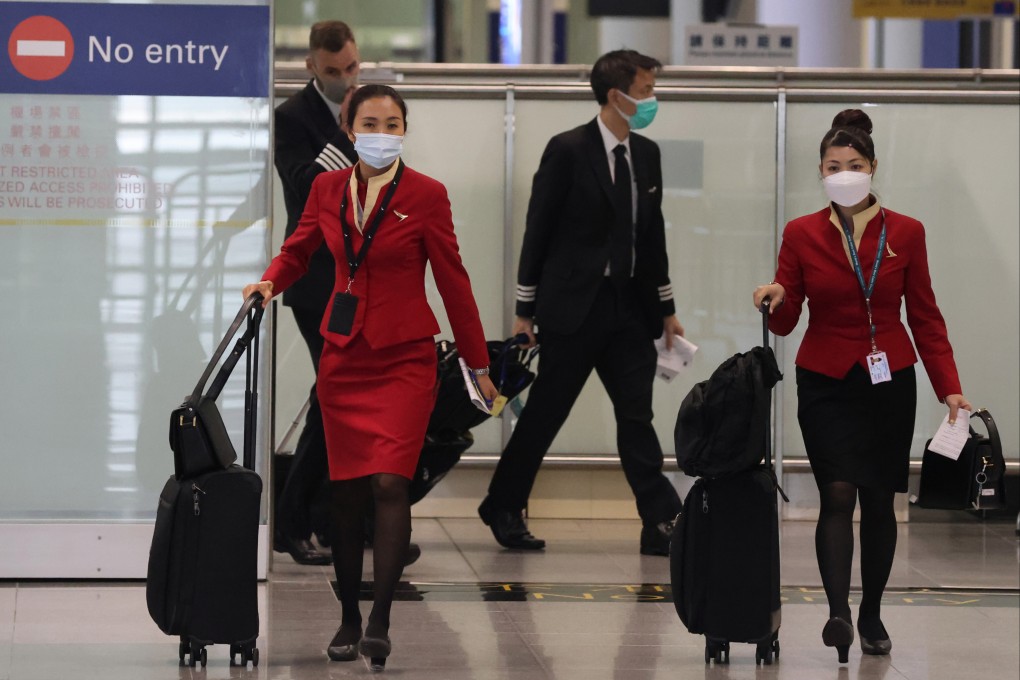Coronavirus: Hong Kong to ease quarantine period for passenger aircrew to 3 days from May 1, provide more hotel rooms for isolation purposes
- Compulsory quarantine period for passenger flight crews to be shortened to three days at a designated hotel plus 11 days of medical surveillance
- Cargo crew to be exempt from quarantine and undergo 14 days of medical surveillance, electronic wristbands no longer required

Hong Kong will ease Covid-19 requirements for aircrew from Sunday, the government has said, with nine hotels designated for isolation of patients set to be turned into quarantine facilities to meet higher demand.
Transport authorities announced the relaxed measures on Friday, confirming an earlier report by the Post that the compulsory quarantine period for passenger flight crews would be reduced to three days at a designated hotel, down from the existing range of seven to 14 days. They must then complete 11 days of medical surveillance.
Cargo crew would be exempt from quarantine and must undergo 14 days of medical surveillance. Staff would also no longer be required to wear an electronic wristband during medical surveillance.
Cargo crew will also be subject to undergo a “test-and-hold” arrangement at the city’s airport, with all such flight personnel required to obtain a negative result from a nucleic acid test before they can leave.

During the first seven days of medical surveillance, all aircrew will be allowed to move freely around the city but must avoid mask-off activities in the public, as well as crowded places and mass gatherings.